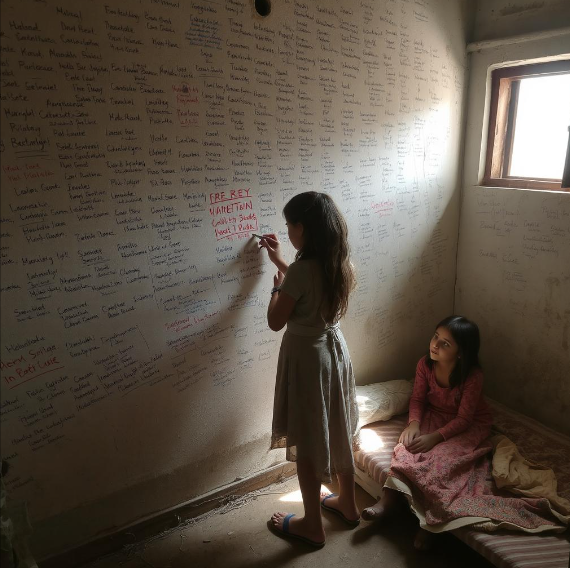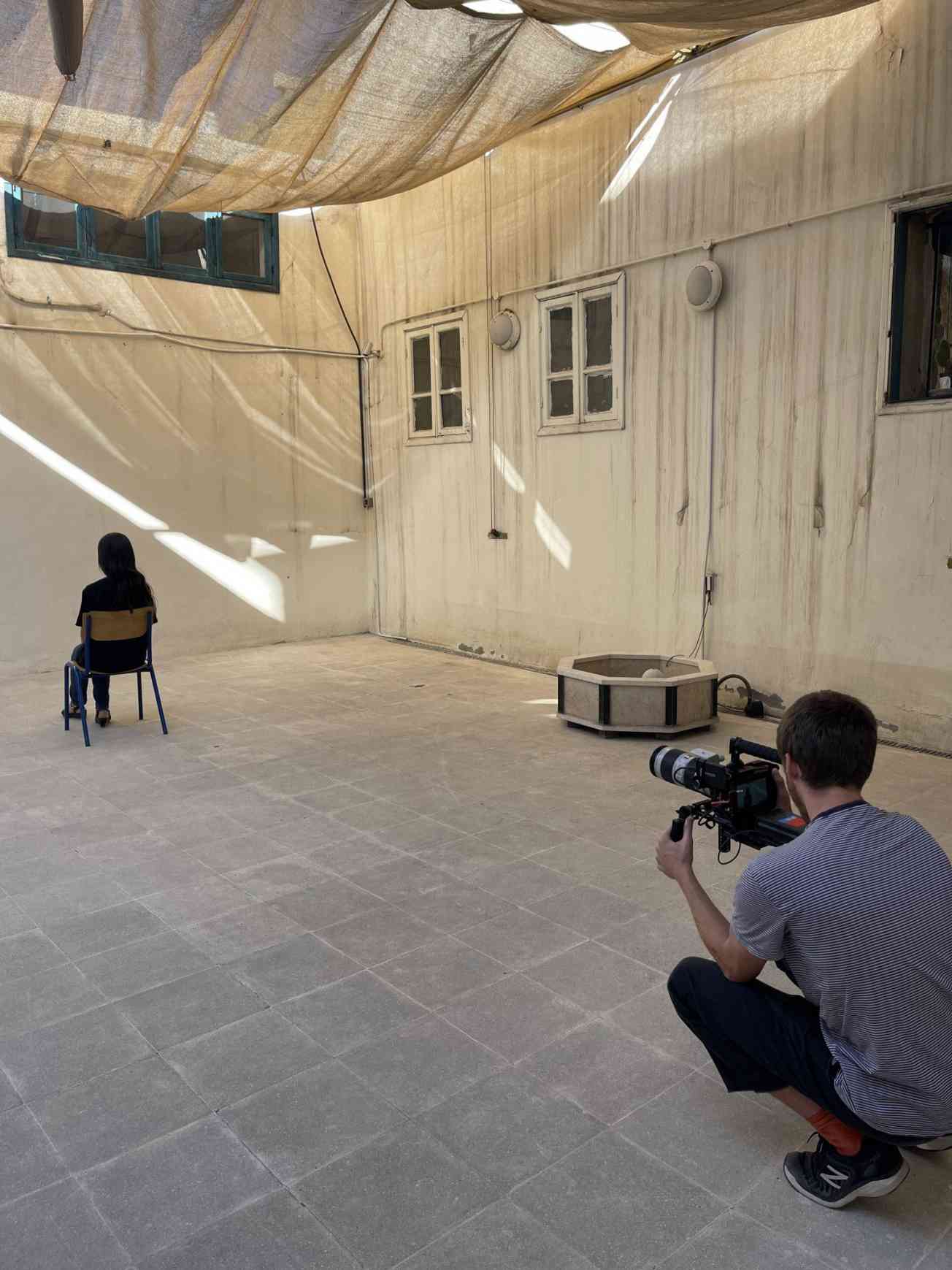
Why do we want to be remembered?
We are driven by an innate desire to be memorable, to achieve a kind of immortality through our legacies. I can’t help but wonder: what have we done on this Earth that truly warrants remembrance? While striving to be remembered by others, they often forget that those others are also dying. So what is the point of being memorable?
My perspective shifted when I arrived at a new refugee camp. It was my third time packing my belongings, which is better than many people who had packed their belongings six times or more. And that justifies this saying in Arabic “He who sees the troubles in someone else’s life finds his own much easier.”
In my new room beside my bed stood a wall—a wall of memories adorned with numbers, names, and dates. At first, it intimidated me. It felt like a prison. But as I took a closer look, I began to delve into those memories. I read each line, trying to decipher the language, who had written it, and when. Tears began to flow as I contemplated the weight of the handwriting. I was haunted by the thought of one day writing memories like these, or worse, experiencing the same loneliness and grief. The idea of waking up each day to a wall filled only with numbers and despair felt unbearable.
Then I noticed the name at the top of the lines: Fatima, written in 2015. Each day, she had drawn a line, and there were countless entries. Gradually, I began to count Fatima’s lines as part of my own journey. “This is day one,” I would say, marking another line, each one a testament to both my life and Fatima’s.
As the months passed, I found myself adding more lines, surpassing Fatima’s time in that place. I chose a different color for my contributions, adding my own touch to the growing tapestry of memories. I even marked my 20th birthday on that wall—what an honor for that space to bear witness to such a significant day!
On my last day there, I wrote a sentence that said:
“I hope you are not in this place looking at these lines, but if you are, know that you are not alone—I was here.”
This experience led me to a profound realization: it’s not about achieving eternal remembrance. It’s about having a witness to our experiences—a validation of our existence in the face of mortality. Each line, each day shared, becomes a connection in this random life.
But I find myself asking two fundamental questions:
First, why do these experiences of being a refugee exist?
Second, why do I crave a witness for my time in a refugee camp?
I will ask myself these questions forever.

Julie Nasser is the founder and coordinator of the website Wanabqa, which is a grassroots Syrian youth-led collective dedicated to promoting, preserving, and rethinking Syrian identity through research, cultural advocacy, social change, storytelling, heritage, and inclusive dialogue.
Official Statement on the Detention of Refugees and Ongoing Community Violence
With another death in Minnesota and continued violence toward individuals and groups standing up for their communities, we acknowledge the profound fear and uncertainty people are feeling--not just locally, but across the country.
On top of this, there are reports that refugees invited and admitted to our country through the U.S. Refugee Admission Program are now being detained, meaning that our new friends and neighbors feel that fear most acutely.
Refugees have already fled violence and persecution once. They came here legally, seeking safety. In moments like these, we reaffirm our commitment to building communities where refugees and immigrants can live without fear. Where they can go to work, send their children to school, and build lives of dignity and belonging.
We call for due process, accountability, and humanity in all immigration enforcement operations. We call upon our leaders to demand the demilitarization of our neighborhoods and cities. And we call on all of us to continue the work of welcoming and protecting those who have been forcibly displaced from their homes.